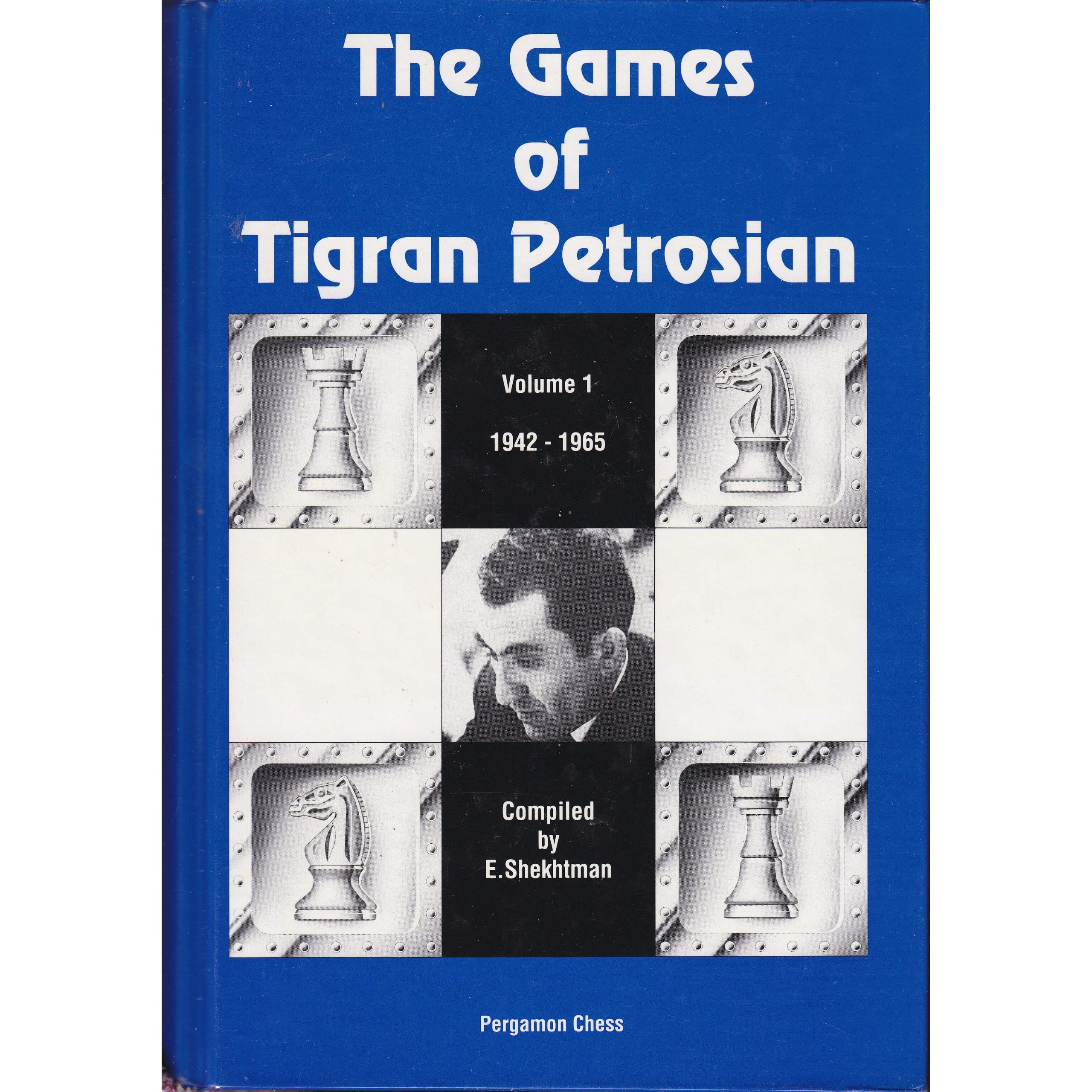
On Petrosian's Mysterious Style, and Difficult Opponents
This post is inspired by a special game played between Tigran Petrosian and Arthur Bisguier in the USSR-USA Match which took place in June, 1954, in New York.
Regarding this match, you can find a good article about it written by Batgirl here:
https://www.chess.com/blog/batgirl/americans-vs-soviets
In the process of preparing this blog, I have used three books:
The first book is "Timman's Titans" (New in Chess, 2016). It is an excellent book, with extensive articles on World Champions from Alekhine to Kasparov, and includes many games that Timman played against some of these great players.

Because the game in question is a Petrosian game, the second book involved in this blog is "The Games of Tigran Petrosian" (Ishi Press, 2012). It is an incredibly complete, two-volume collection of Petrosian's games! The first volume has 1,089 games, covering the years 1942-1965. The second volume has 1,062 games played between 1966-1983.
Many of the games are commented by Petrosian; others by outstanding annotators. The volumes also include interviews of Petrosian and biographical details.


The last book involved in this article is a recent publication:
"The Nemesis: Geller's Greatest Games" (Quality Chess, 2019).
This is a book to treasure. First of all, Quality Chess books are made to last! This one is no exception. It is a hardcover book which includes 135 of Geller's Best games commented by Geller himself!
For someone like me, who can't afford a coach, good books by great Masters are of great value. Geller is a great teacher; he was coach to both Spassky and Karpov!

OK, first of all, here is the game in question. Why did it capture my attention? I was impressed by Petrosian's wide, dominating front across the whole board:
Mikhail Botvinnik lost the World Champion title to Tigran Petrosian in 1963. In his book "My Great Predecessors, Vol. III", Kasparov writes:
Three years later he asked Spassky, who had just lost a match to Petrosian: "Were you able to guess his moves, Boris Vasilievich?" "No, not always", Spassky replied. "I too was unable to guess them", Botvinnik admitted. In his way of speaking this was the highest praise for his opponent."
Petrosian was a real chess genius; he changed the game as we know it. His contributions to the royal game are too numerous to include here; his style is too versatile and varied to define; he is for many, indeed, a mystery.
His games cover a wide variety of concepts and grand strategies; his tactical mastery is spotless; Spassky considered Petrosian mostly as a tactician, even though this runs contrary to the regular, one-line cliches about Petrosian.
Here is a wonderful game, in which Petrosian sacrifices a piece to establish a pawn wall that covers the whole board! And this game was played when he was 17 years old!
Going back to Bisguier, his lifetime score against Petrosian was 3 losses, no wins and 7 draws.
All three losses were in the English Defense, and in two of those Petrosian had Black!
So Petrosian was an incredibly strong player, with great positional sense, awesome tactical awareness and efficacy and world-class endgame technique. Add to that the fact that he had a great sense of danger, which meant he could snuff out your attack before it started, and you get an idea of how difficult it was to win a game against him! Polugaevsky said that it was harder to win a game against Petrosian than to win a Soviet Championship!
And on that note, I just want to mention something that I have mentioned before in other blog posts: You can be a great player, even the "best", but some opponents will be difficult for you. This happens in many individual sports, such as chess and tennis.
Geller, for example, had a plus lifetime score against Petrosian: 5 wins, 3 losses, and 32 draws!
The game that sticks out in my mind between these two opponents is a game that lasted 42 moves, but was effectively over after 13 moves. Yes, Petrosian was dead lost after 13 moves!
Take a look!
Geller comments:
"How is it to be explained that the usually prudent and cautious Tigran Petrosian has an utterly hopeless position as early as move thirteen- an extremely rare if not unique occurrence in his career? The point, probably, is that the players facing each other in this game were intimately acquainted not only with each other's chess styles and habits but also with each other's mode of thought, with the minute details of each other's chess likes and dislikes. In such games it is most important to win the duel on the purely psychological level. I fancy that Petrosian was troubled by the sensations of a man who is being "seen through".
As a point of reference, here is another great win by Geller, against World Champion Karpov, and also against the Winawer! A spectacular game!
 Geller-Karpov, 1976
Geller-Karpov, 1976
